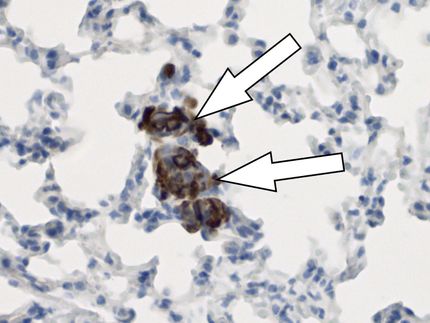New research findings enable more reliable prognoses for breast cancer
Researchers at Umeå University in Sweden have shown that the length of telomeres in blood cells in newly diagnosed breast cancer patients is tied to survival rates. The study was carried out by a research team headed by Professor Göran Roos at the Department of Medical Bioscience, pathology.
The study shows that the telomere length in blood cells is associated with prognosis for breast cancer. The blood cells of the cancer patients in the study had somewhat longer telomeres than those of controls. It is interesting to note that within the tumor group patients with longer telomeres (longer than the mean length of telomeres) had a significantly poorer prognosis than did patients with shorter telomeres. This difference in survival was above all seen in patients with more advanced disease, that is, with larger tumors and metastases in local lymph glands.
It is particularly important that the telomere length in these blood cells proved to be a prognostic marker that is independent of other well-known prognostic markers (tumor size, tumor metastasis). In other words, this new biological marker appears to be able to tell us more about the future prospects of cancer patients than previously known markers can.
The tips of chromosomes, telomeres, are important for the genetic stability of our cells. In normal cells, telomeres are shortened each time cells divide, whereas cancer cells usually have stable telomere length. This stability helps provide cancer cells with eternal life. The length of a cell's telomeres is determined by the balance of positive and negative factors, many of which are unknown.
Just why breast cancer patients with longer telomeres in normal blood cells have poorer prognoses than other patients is unclear at present. A number of explanations are under discussion. One probable hypothesis is that patients' telomere lengths are a reflection of presently unknown functions of the immune defense system. Preliminary unpublished data from the research team show that this biological marker can provide prognostic information for other tumor diseases as well. This makes it even more important to understand the mechanisms behind the observed differences in telomere length.
The study was performed in collaboration with colleagues at the oncology and medical clinics at Norrland University Hospital and Malmö Academic Hospital. The study comprises 265 patients who gave blood samples directly after they were diagnoses with breast cancer and 446 controls.
Original publication: Svenson U, Nordfjäll K, Stegmayr B, Manjer J, Nilsson P, Tavelin B, Henriksson R, Lenner P, Roos G.; "Breast cancer survival is associated with telomere length in peripheral blood cells." Cancer Research 2008.
Topics
Organizations
Other news from the department science

Get the life science industry in your inbox
By submitting this form you agree that LUMITOS AG will send you the newsletter(s) selected above by email. Your data will not be passed on to third parties. Your data will be stored and processed in accordance with our data protection regulations. LUMITOS may contact you by email for the purpose of advertising or market and opinion surveys. You can revoke your consent at any time without giving reasons to LUMITOS AG, Ernst-Augustin-Str. 2, 12489 Berlin, Germany or by e-mail at revoke@lumitos.com with effect for the future. In addition, each email contains a link to unsubscribe from the corresponding newsletter.


















































